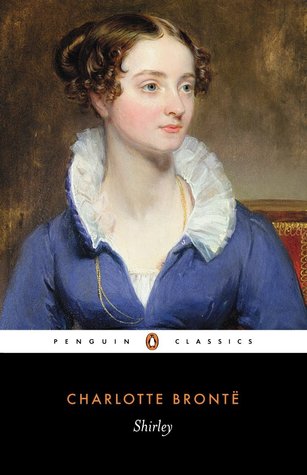1849 was a sad, tumultuous year in the Brontë parsonage at Haworth. Anne Brontë died in May of that year, just a short few months since the passing of her siblings. Charlotte Brontë was now left alone, the last surviving sibling, and as she revealed in a letter to W. S. Williams, it was a heavy burden to bear: ‘They [Emily and Anne] are both gone, and so is poor Branwell – and Papa has now me only – the weakest, puniest, least promising of his six children. Consumption has taken the whole five.’
Charlotte needed something to distract her mind from the terrible year she had endured, and she turned again to writing. By the close of August she had more or less completed her novel Shirley and she had also composed a preface to it. This preface is a remarkable piece of writing as it gives a great insight into Charlotte’s mind at the time, so we’re going to look at it in today’s post.
What we see from the preface that has come to be known as ‘A Word To “The Quarterly”’, is that Charlotte was angry about some of the reviews she and her sister had received. Emily and Anne could no longer defend themselves from the critic’s opprobrium, but she would take their barbs no longer. There was one particular review which particularly irked Charlotte, and it was a review which was particularly lacking in sagacity and insight. It’s one we’ve examined in a previous post, and it was written by one Elizabeth Rigby for ‘The Quarterly’ magazine.
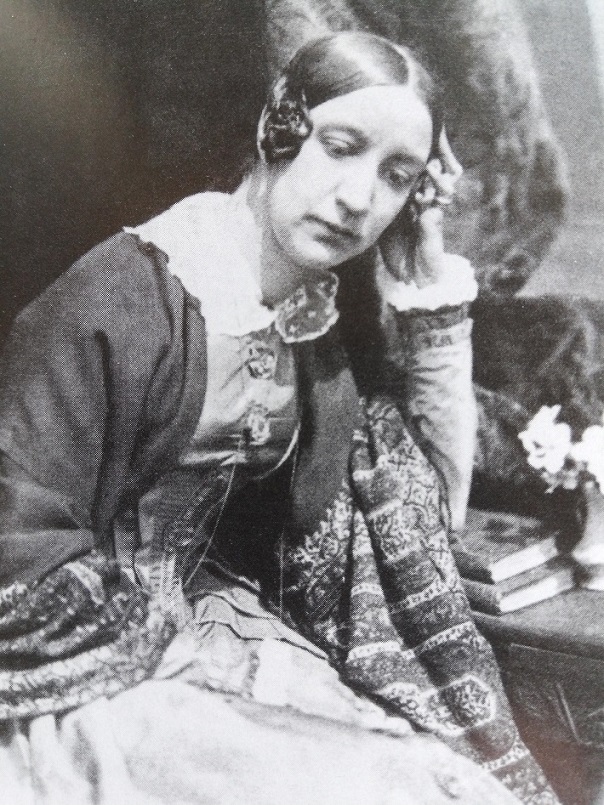
Rigby later became Lady Eastlake after her husband was knighted for his services to arts administration. She had very strong views, some might say snobbish views, many of which would seem more than puzzling to us today. As well as Charlotte, for example, she also voiced strong criticism of the likes of Wordsworth. For balance, however, it has to be said that she was a supportive friend of Effie Gray during her divorce from John Ruskin. Elizabeth’s long review of Jane Eyre attacked it on many fronts, attacking its vulgarity in its use of language, and suggesting that it must have been written by a lower class woman, probably a governess to William Makepeace Thackeray. These insults burned within Charlotte, so she, under her persona of Currer Bell, provided a witty and considered response in her preface to Shirley. Nevertheless, she did not fail to let Elizabeth Rigby have it with both barrels, as we can see now in the preface:
“A WORD TO THE QUARTERLY, AUGUST 29TH 1849
The public is respectfully informed that with this Preface it has no manner of concern, the same being a private and confidential letter to a friend, and – what is more – a “lady-friend.”
Currer Bell can have no hesitation as to the mode in which he ought to commence his epistle: he feels assured – his heart tells him that the individual who did him the honour of a small notice in the “Quarterly” – if not a woman, properly so called – is that yet more venerable character – an Old Woman. His ground then is clear and he falls to work upon it with much heart and comfort.
Dear Madam, I daresay I should have written you before but at the time your favour reached me I was engrossed with matters whereof I am dispensed from giving you the faintest outline of an account. It is not my intention to go through your article from beginning to end: I merely wish to have a little quiet chat with you on one or two paragraphs.
In the first place, you appear alarmed with an idea that “the tone of mind and thought which has overthrown authority and violated every code, human and divine – abroad – and fostered Chartism and Rebellion – at home – is the same which has also written ‘Jane Eyre’.”
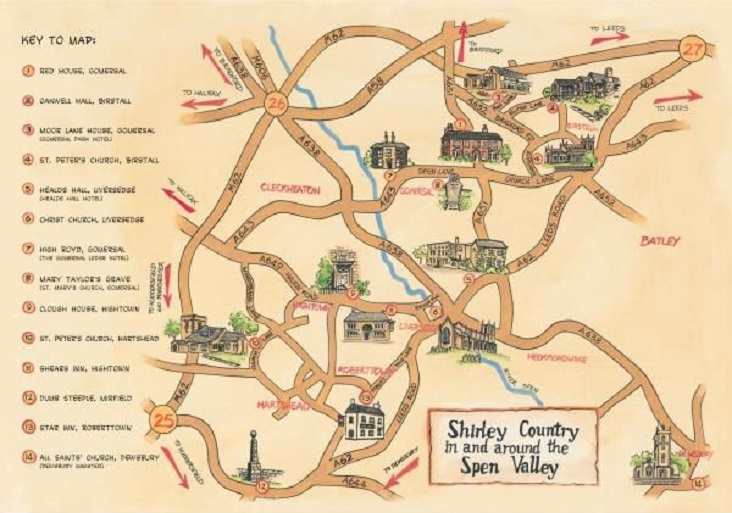
Let us not dwell on this subject: let us pass it lightly: if we trod with audacious emphasis, or if we confidingly sat down, both of us might fly abroad on the wings of sudden explosion. Any man’s nose may here wind a Gunpowder Plot; the very savour and odour of the thing is traitorous. Permit me but to whisper – as you and I glide off, arm-in-arm and on tip-toe – Don’t be too uneasy, dear Madam; take not on to any serious extent; be persuaded to keep as cal as may be. I am not at liberty to say more: we live in strange times – muffled in Mystery. Hush!
In the second place, you breathe a suspicion that Currer Bell, “for some sufficient reason” (Ah! Madam: Skilled by a touch to deepen Scandal’s tints, with all the kind mendacity of hints.) “for some sufficient reason” has long forfeited the society of your sex. In this passage – Madam – we discover an undoubted Mare’s nest: here is the cracked shell of the equine egg: there the colt making its escape á toutes jambes and alas! yonder – Truth scouring after it, catching it and finding the empty phantom vanish in her grasp. You should see – Ma’am, the figure Currer Bell can cut at a small party: you should watch him assisting at a tea-table; you should behold him holding skeins of silk or Berlin wool for the young ladies about whom he innocuously philanders, and who, in return, knit him comforters for winter-wear, or work him slippers for his invalid-member (he considers that rather an elegant expression – a nice substitute for – gouty foot; it was manufactured expressly for your refinement) you should see these things, for seeing is believing. Currer Bell forfeit the society of the better half of the human race? Heaven avert such a calamity – ! The idiot (inspired or otherwise) Samuel Richardson, could better have borne such a doom than he.
The idea by you propagated, if not by you conceived, that my book proceeded from the pen of Mr. Thackeray’s governess caught my fancy singularly: I felt a little puzzled with it, at first, as – I make no doubt – did Mr. Thackeray – but, on the whole, it struck me as being in my line – in the line of any novel-wright – something boldly imaginative, – cunningly inventive, the reverse of trite. You say, you see no great interest in the question; I do: a very comical interest. What other “romantic rumours” have been current in Mayfair? You set my curiosity on edge. I have but a very vague notion of the occupations and manner of life of the inhabitants of Mayfair, but I rather suspect them of resembling the old Athenians who spent their time in nothing else but either to tell or to her some new thing. Who invents the new things for their consumption? Who manufactures fictions to supply their cravings? I need not ask who vends them: you, Madam, are an active saleswoman; the pages of your “Quarterly” form a notable advertising medium.
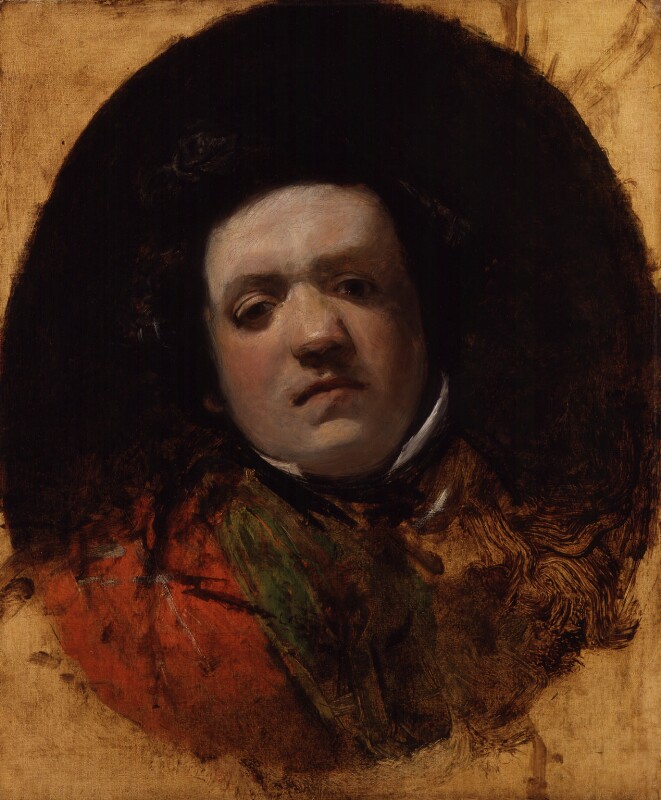
Attentive to your stricture, I have made a point of ascertaining what that garment is which ladies, “roused in the night”, assume in preference to “frock” or gown, as being at once “more convenient and more becoming”. Candid – as I am sure you are, you will cheerfully allow that I have mastered it, and mastered it triumphantly; in proof whereof I point – not without exultation, to Mrs. Yorke in her Flannel Wrapper: chaste! simple! grand! severe! At this moment I recall another species of drapery whose dignity may be considered yet more recondite and impressive – the camisole or short night-jacket. On mature reflection however – it is my own unbiased opinion that the Wrapper – the Flannel Wrapper harmonises best with the genius of the British Nation to the folds of the Wrapper therefore I cling – and from that patriotic motives – the French – the Belgian women wear camisoles – and pretty figures they cut in them!
For the rest my accuracy is no novelty. Recollect, ma’am, it was only the happy little governess whom I represented as putting on her “frock” and shawl – and as she possessed but three “frocks” (that class of persons often use the word “frock” where a lady would say “dress”, if you observe, ma’am, as does also the domestic servant; – I like to put them on a level) in the world – a personage of your sagacity will have no difficulty in inferring that she was unlikely to boast any choice of garments more convenient and becoming; it may be questioned, indeed, whether it would not have been a piece of impertinent presumption in her to aspire to any such; at the same time two dowager ladies of quality, “roused in the night,” are exhibited as “bearing down on Mr. Rochester in vast white wrappers”. Here, ma’am, is both a fitness of things and a concatenation accordingly. I discuss these points at length under the satisfactory condition that I am writing to one who feels all their profound importance.
The other day I took the train down to Ingram Park to make personal inquiry of Miss Blanch Ingram’s maid about the material of her lady’s morning-dress. I am bound to confess that she shared your righteous indignation. “Crape!” she cried “her mistress never put on crape in a morning in her life, nor gauze neither!”. I petitioned to be informed – She told me “Barége” and proceeded to give a minute description of the pattern: you will have pleasure in hearing it repeated: A light blue ground, barred across with faint stripes of a deeper colour, figured with a pattern of small leaves mixed with zigzags, finished with a narrow silk stripe, straight down. “Very neat” I pronounced it.
You will perhaps say, Ma’am, that “barége” is a fabric of more recent invention than the days of Miss Ingram’s youth; in that case I can only answer, as the young ladies of a foreign establishment where I once taught English were wont briefly to answer when but too clearly convicted of fiction: “Tant pis!”
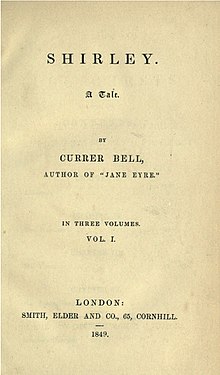
I had some thoughts on concluding my letter by a tender reproof of that rather coarse observation of yours relative to dessert-dishes and game – but I forbear – warning you only not to indulge too freely in the latter dish when very “high” – in that state it is not wholesome.
What a nice, pleasant gossip you and I have had together, Madam. How agreeable it is to twaddle at ones ease unmolested by a too fastidious public! Hoping to meet you one day again – and offering you such platonic homage as it becomes an old bachelor to pay. I am yours very devotedly, CURRER BELL
Allow me to add my address: Hay-lane Cottage, Hay, Millcote. Should you ever come down to the North – pray do not forget this modest indication. N.B. I read all you said about governesses. My dear Madam – just turn out and be a governess yourself for a couple of years: the experiment would do you good: a little irksome toil – a little unpitied suffering – two years of uncheered solitude might perhaps teach you that to be callous, harsh and unsympathizing is not to be firm, superior, and magnanimous. It was a twinge of the gout which dictated that postscript.”
As we can see, Charlotte has invented a complete persona for Currer Bell – a gout riddled man who lives in Millcote, a fictional location well known to readers of Jane Eyre. Why have I chosen this fascinating preface for today’s post? It is because it was on this day in 1849 that Charlotte Brontë received a letter from her publisher saying that they would not publish the preface, and asking her to supply a different one. To this day, you won’t find this preface in any edition of Shirley. Presumably, George Smith felt that attacking critics, however deserving of it they may be, was not a wise commercial decision, or possibly he was worried that they could be opening themselves up to legal action? Whatever the reason, Charlotte’s idea of taking revenge against Elizabeth Rigby through her novels would never come to fruition. Or would it?
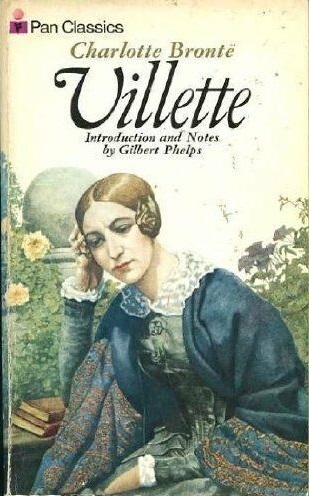
Here is the cover to a 1973 Pan Classics edition of Villette. As we can clearly see by comparing it to the photograph above, they have used Elizabeth Rigby herself as the cover star: whatever would she have made of that? A word to the wise: there will be another new Brontë blog post here next Sunday, and I hope you can join me then. Have a great day, and a great week to follow.
